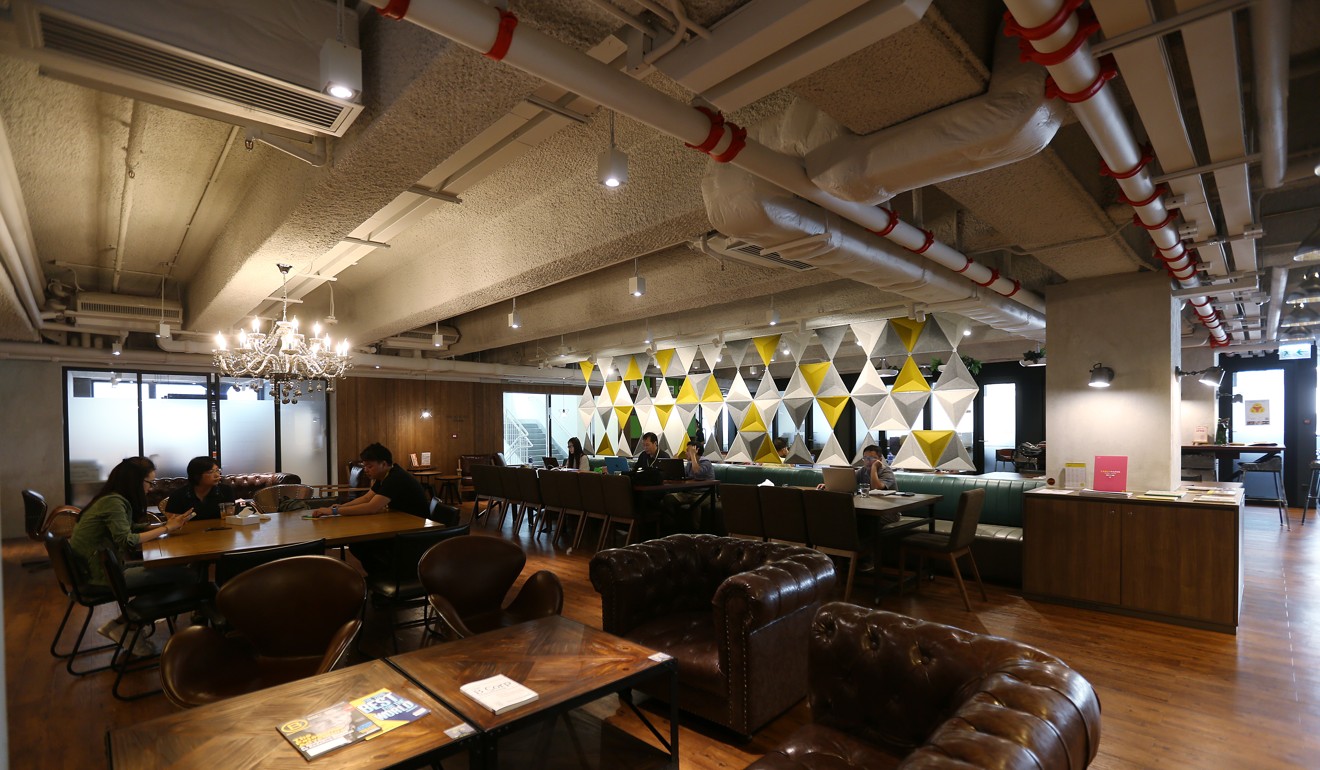
Financial firms the latest to embrace co-working spaces in search for new ideas
Deloitte, HSBC and Manulife among companies seeing the potential to mingle with entrepreneurs and start-ups and tap into the free flow of information that shared workplaces offer
Co-working spaces are no longer just places for entrepreneurs to start businesses, as financial services companies embrace the concept to seek innovative ideas and new ways to expand in the era of fast-changing technology.
US-based WeWork, the world’s largest provider of shared work spaces, has recently secured Deloitte’s Asia Pacific Blockchain Lab, a regional fintech centre with a team of 30, as a tenant in its Hong Kong co-working space.
“We’re seeing an increasing number of financial services companies coming into our spaces worldwide,” said Christian Lee, managing director of WeWork Asia.
Tenants from the finance industry include HSBC, Bank of America, Mastercard, Silicon Valley Bank, Deutsche Bank and Nasdaq, while insurance companies Manulife and FWD have taken desks in WeWork locations in Greater China, he said.
Last September, HSBC made headlines by moving 300 staff from its digital and transformation teams into a WeWork hot-desking site in Causeway Bay, Hong Kong.
“Within these close-knit communities, financial services companies are interested in meeting and learning from fintech start-ups and other members,” Lee said. WeWork has eight locations in Shanghai, Beijing and Hong Kong, and plans to move into three to five new cities in China in 2018.
Deloitte’s thinking behind the move of its team to a shared workspace was to leverage collaboration with entrepreneurs, start-ups and others to come up with innovative ideas, it said.
Other companies are drawn by that opportunity, as well as the digital infrastructure, vibrant communities and flexible leases that shared working spaces offer. Such work spaces also help in improving productivity and reducing costs.
Hong Kong-based serviced office provider The Executive Centre, which offers private workspaces as well as co-working spaces, sees a change in the way financial companies view their office space.
“Fintech and efficiency trends have, since 2009, continuously reduced the permanent headcounts of most financial institutions, triggering a gradual reduction in the amount of permanent space that they lease directly with landlords,” said Paul Salnikow, the company’s chief executive.
Financial services companies now account for 49 per cent of The Executive Centre’s Hong Kong membership and 27 per cent of its mainland China membership.
“The positioning of back office teams into inexpensive co-working centres is the latest example of financial companies updating their occupancy practices to reduce the cost of back office teams while at the same time, maintaining the prestige of their front office operations,” Salnikow said.
Others see the popularity of co-working spaces continuing as companies evolve.
“The flexibility of traditional office lease is low, plus when you move in, you get to spend a lot of money for renovation,” said John Siu, managing director and head of office agency at property agency Cushman & Wakefield.
“Co-working spaces come up as a great alternative for companies that want to test new business lines to catch up with the trends,” he said.


